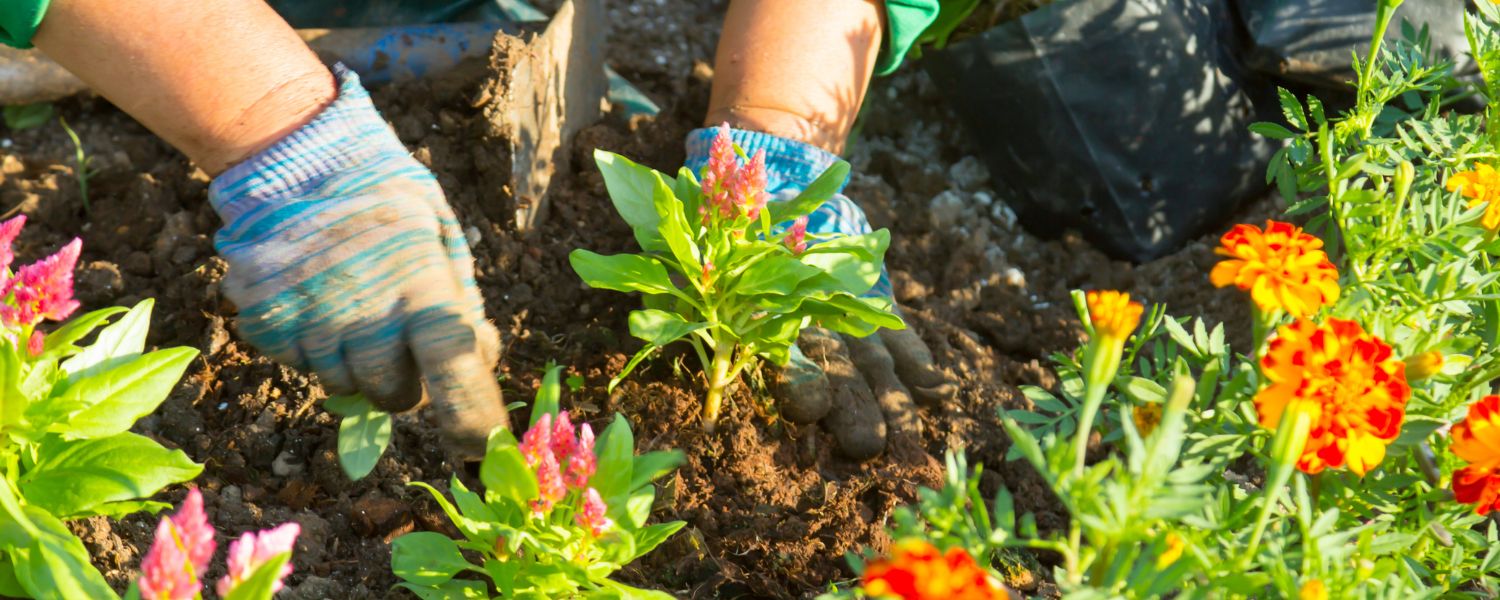
Greener gardening: 8 easy wins for your outdoor space this summer
Looking to make the most of your garden while keeping things eco-conscious? These practical tips will help you create a vibrant, wildlife-friendly garden that’s easier on your wallet and the environment.
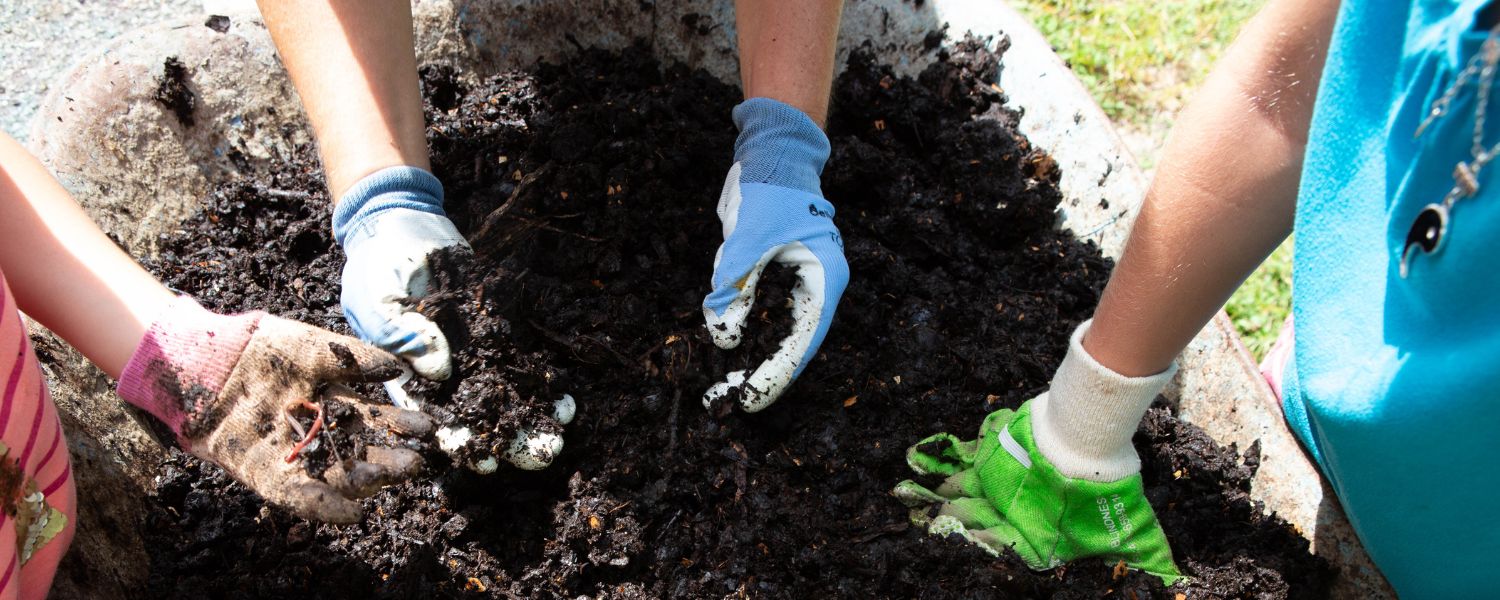
1. Skip the peat and save our bogs
Peat might be a familiar gardening staple, but its environmental impact is anything but green. Peat extraction destroys valuable habitats and releases locked-in carbon into the atmosphere.
- Choose compost clearly labelled “peat-free.”
- Make your own compost using kitchen and garden waste.
- Try alternatives like composted bark or leaf mould.
One standard 60-litre bag of peat compost can release more CO₂ than a one-way flight from Belfast to London.1, 2
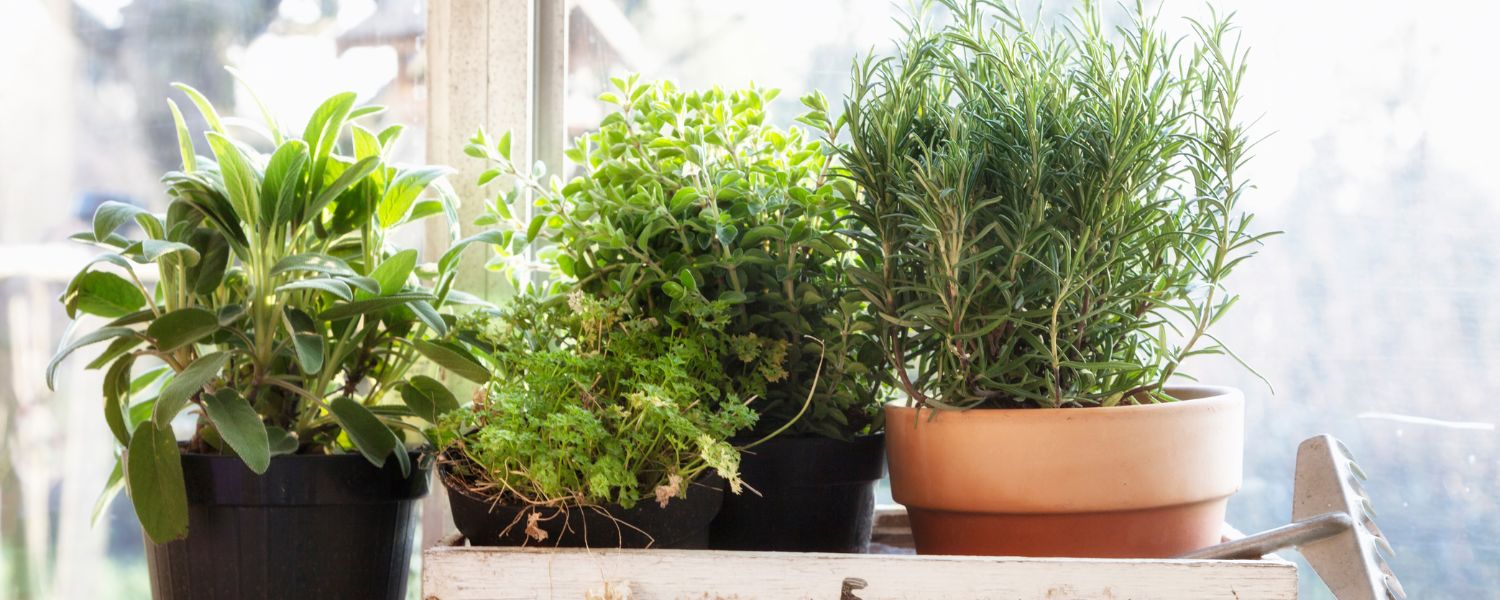
2. Grow your own and cut the food miles
There’s nothing like the taste of homegrown produce. It’s also great for your wallet and the planet, and even small spaces can be surprisingly productive.
- Start simple with salad leaves, herbs strawberries or courgettes.
- Use window boxes, pots, hanging baskets and trellises if space is tight.
- Add a few cutting flowers like cosmos or calendula for colour and pollinators.
One tomato plant can yield up to 25 lbs of fruit in a season—and a single courgette plant can keep you going all summer long. 3
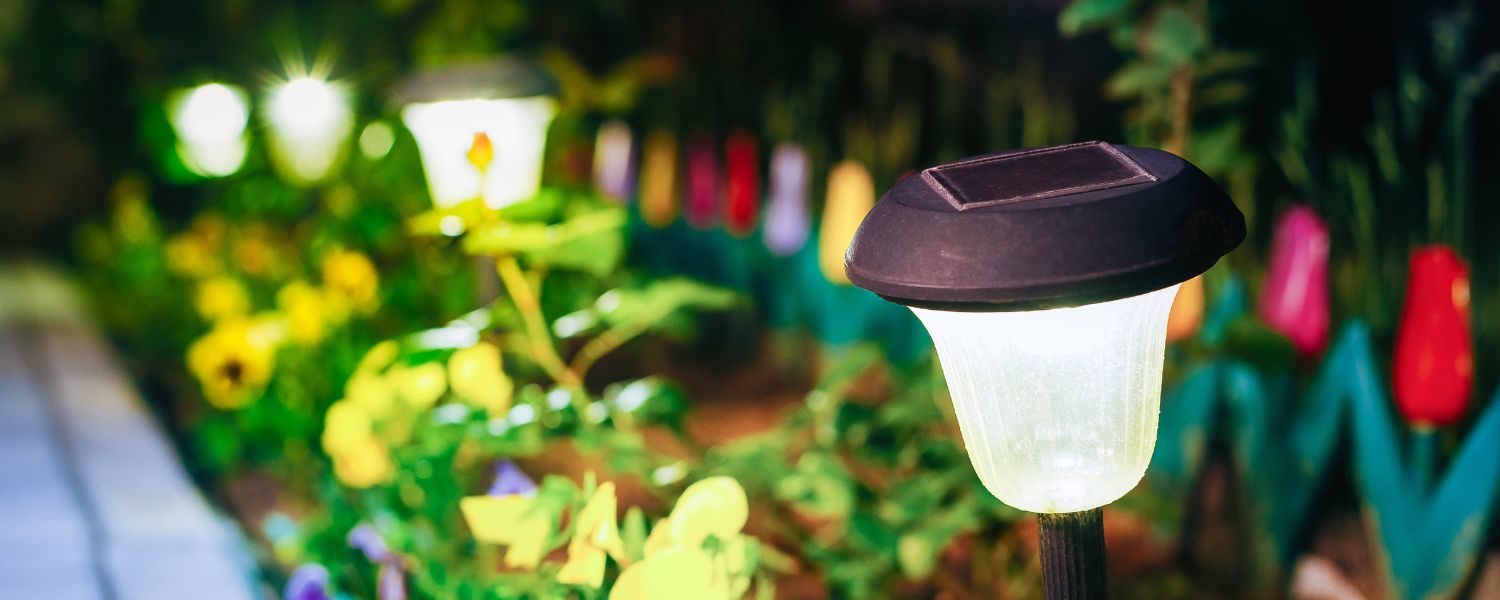
3. Brighten up with solar power
Outdoor lights can quickly add up on your electricity bill, especially if they’re on every night. But solar lighting gives you a greener (and cheaper) alternative.
- Use solar-powered lanterns, spotlights or fairy lights for paths, patios and flowerbeds.
- Choose lights with good battery capacity and check they’re rated for cloudy Northern Ireland weather.
- Place them in the sunniest spots for maximum charge.
Switching five outdoor lights from 60W bulbs to solar could save around £30 over the summer months. 4, 5
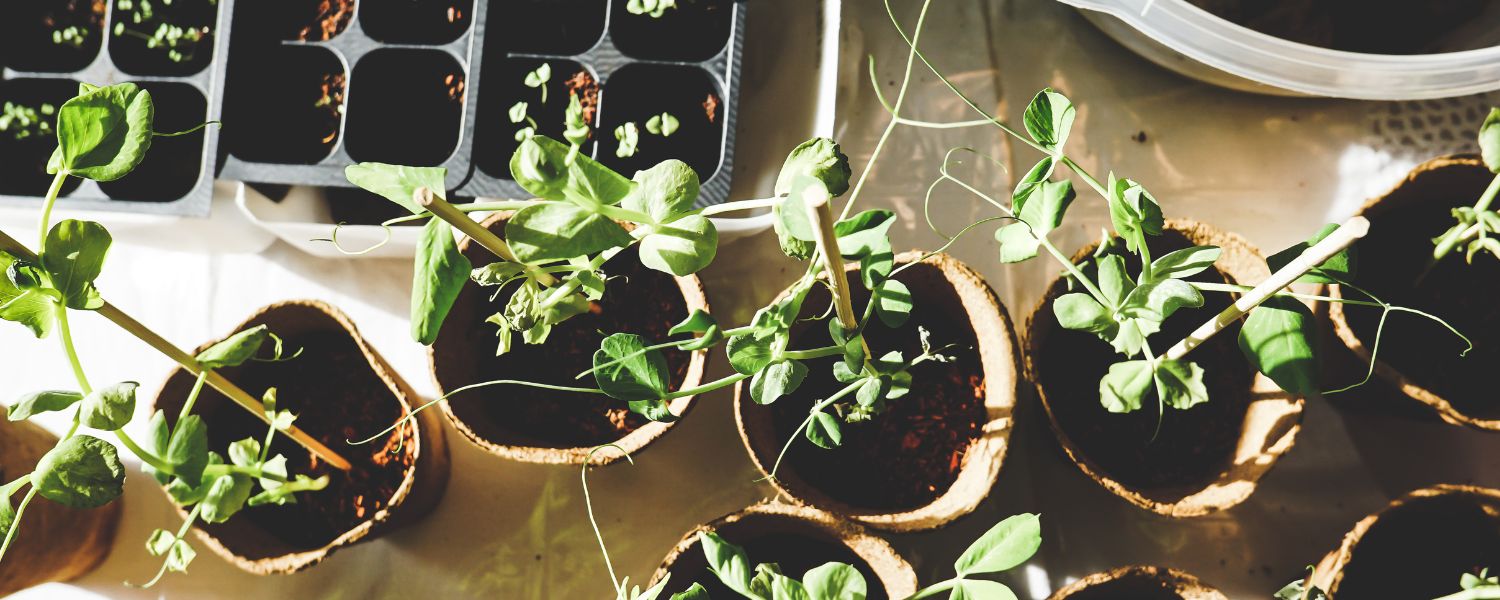
4. Share the love (and the tools)
Gardening’s even better when it’s shared. Whether it’s chatting over the fence or starting a local gardening group, growing together is a great way to save, learn and connect.
- Swap seeds, seedlings and cuttings with neighbours or friends.
- Team up to buy compost, soil or tools in bulk.
- Share advice, and even the odd disaster, along the way.
Around 95% of plastic plant pots are thrown away after one use. 6 Growing from seed and sharing cuttings can help reduce waste and save money.
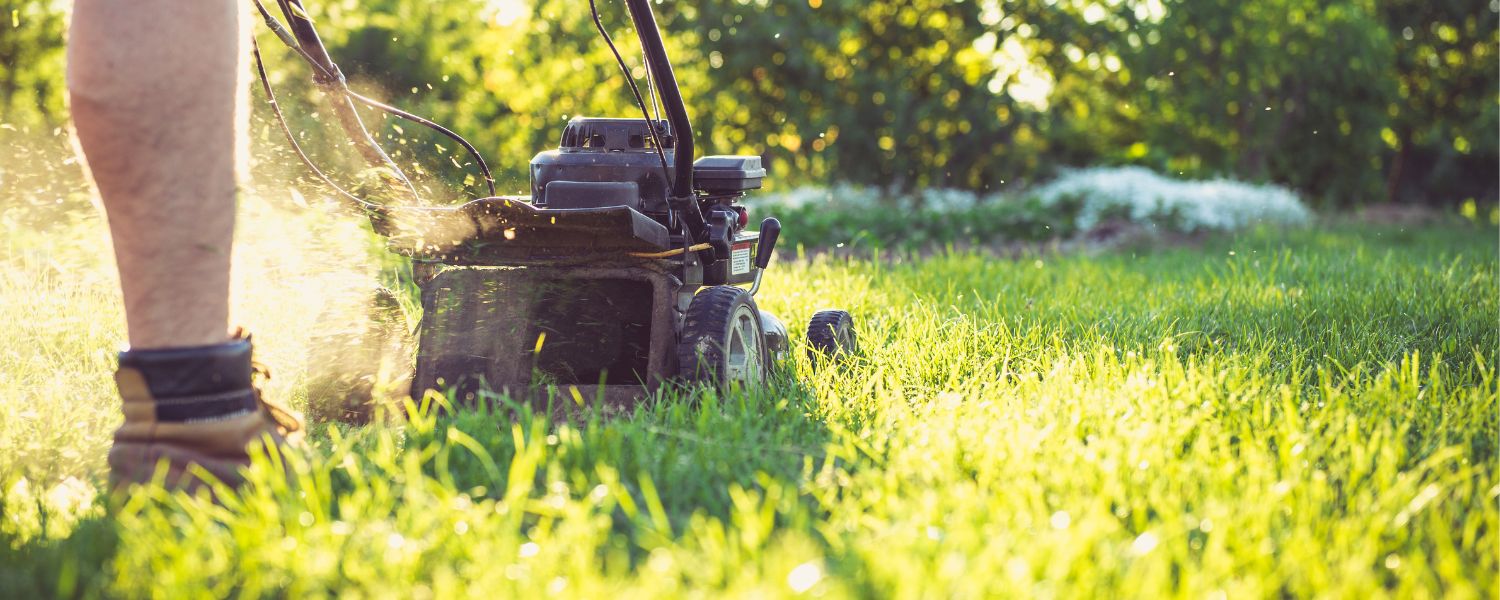
5. Ditch the petrol tools
Petrol-powered mowers and trimmers might be powerful, but they’re noisy, high-emission and surprisingly polluting.
- Over time aim to switch to electric or battery-powered tools; they’re quieter, cheaper to run and much cleaner.
- If you’ve got solar panels, even better, you can power your gardening with renewable energy.
- Mow less often or leave a patch wild for bees and butterflies.
An hour with a petrol mower can produce as much pollution as driving a car 100 miles. 7
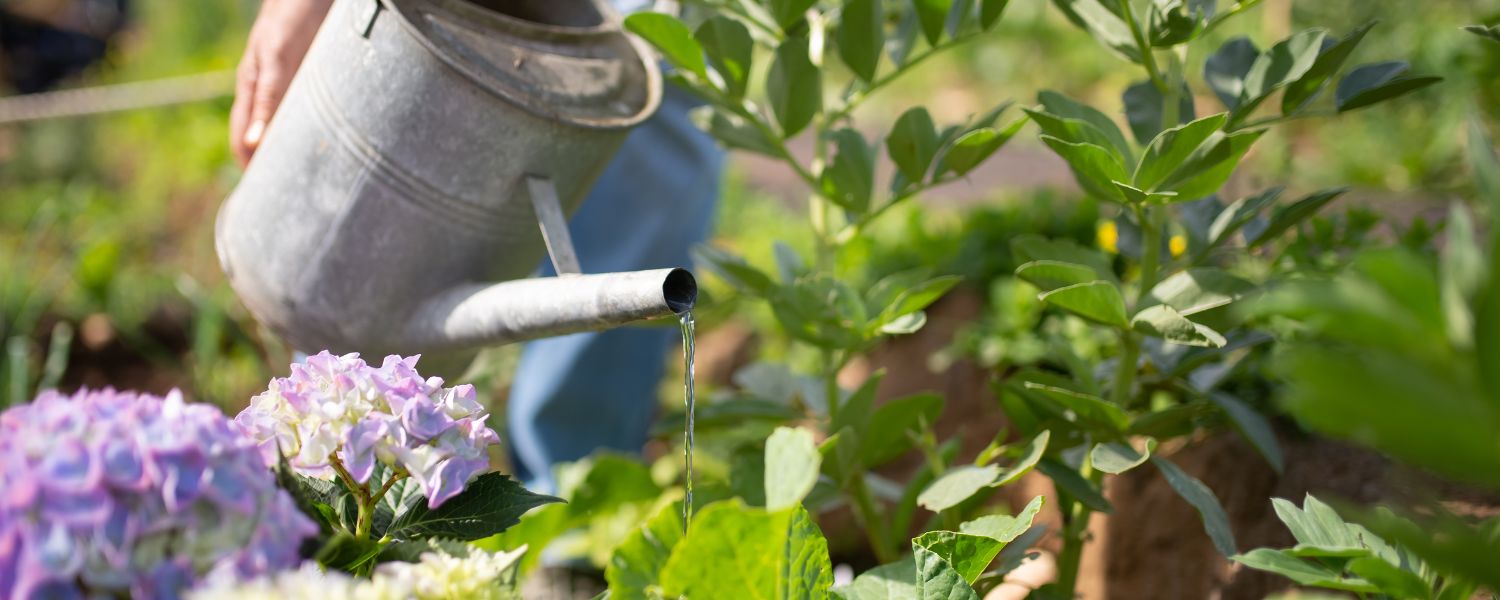
6. Use water wisely
Even in Northern Ireland where we get lots of rain, gardens can place extra strain on water supplies in dry weather. And the energy used to treat and pump tap water adds to your carbon footprint.
- Install a water butt or barrel to collect rainwater, ideal for watering pots and flowerbeds.
- Add a dipping tank or trough that can double as a mini wildlife pond.
- Water early or late in the day to reduce evaporation.
- Mulch beds and borders to keep moisture in and weeds down.
A garden hose can use over 1,000 gallons of water in just one hour. That’s more than ten times what’s used for a shower, laundry cycle, dishwasher and ten toilet flushes combined. 8
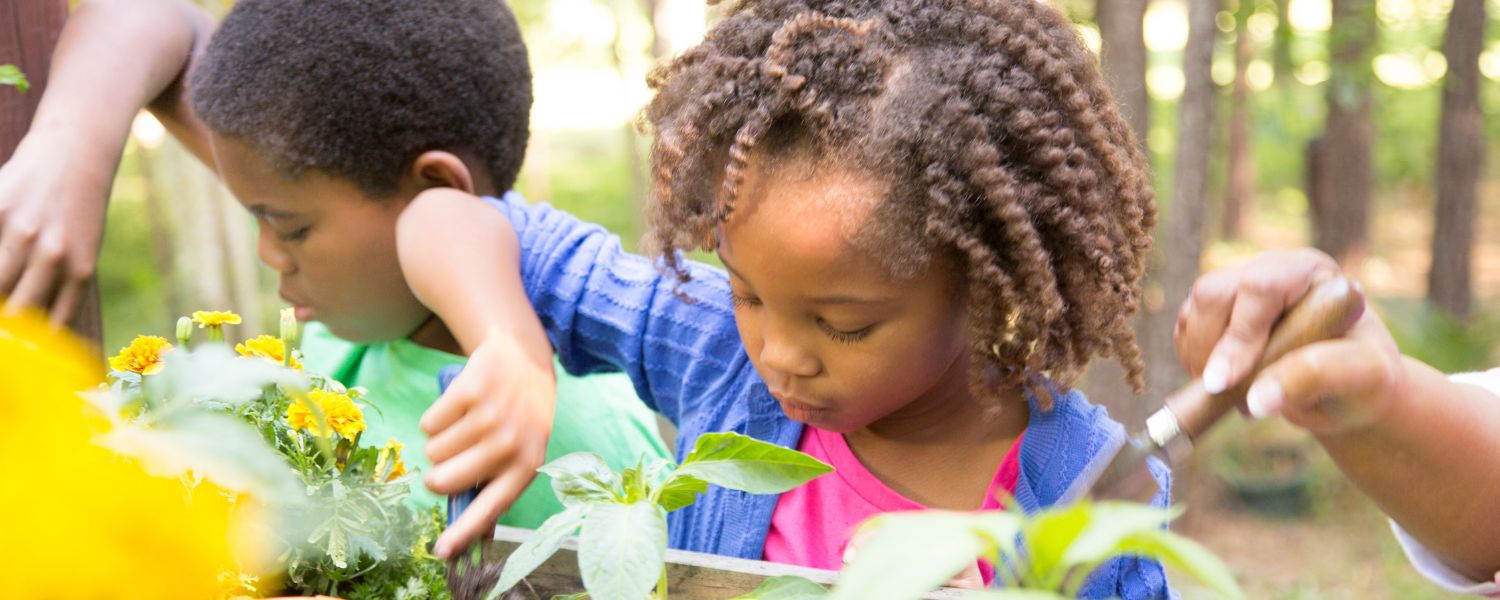
7. Go natural and let nature lend a hand
Ditching chemicals and working with nature makes gardening easier and far better for the environment.
- Choose hardy, low-maintenance plants suited to your soil and conditions.
- Encourage natural pest control with marigolds, nasturtiums and helpful insects like ladybirds.
- Make homemade sprays with garlic, chillies and a little soap to ward off unwanted bugs.
Plants like hardy geraniums, sedges and rudbeckias thrive in both drought and damp, perfect for Northern Ireland gardens with unpredictable weather.
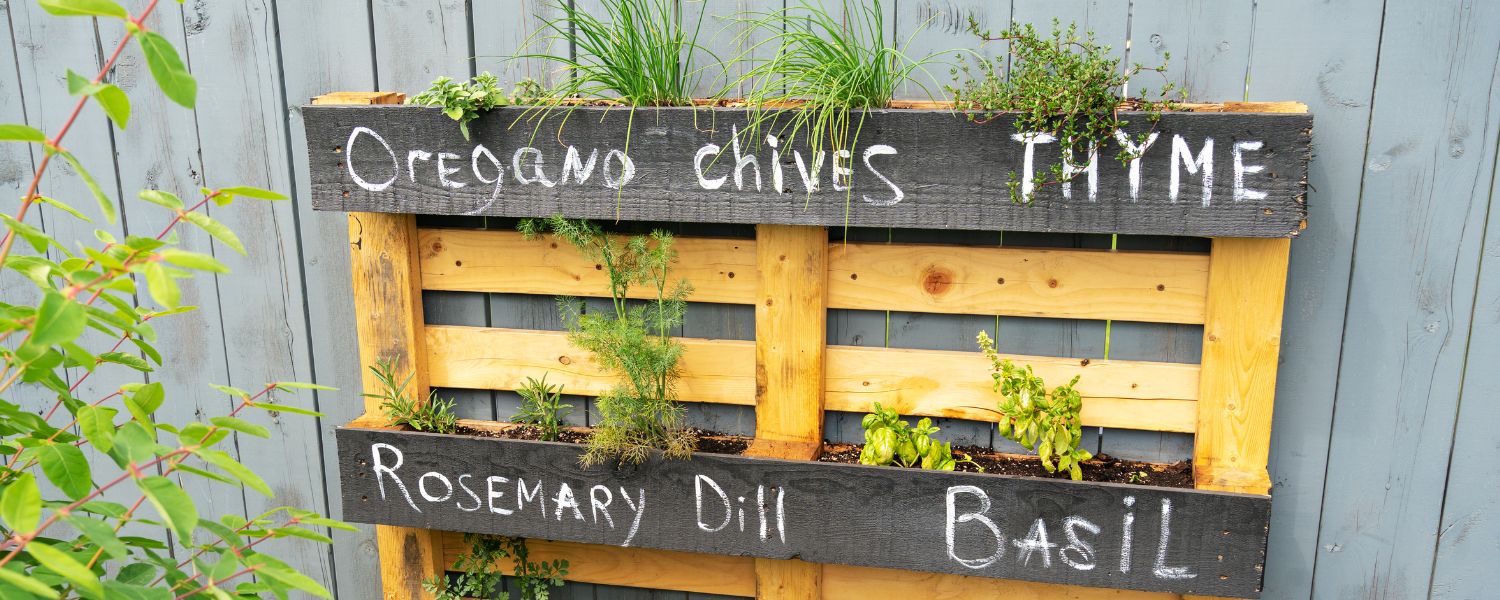
8. Reuse, repurpose, reimagine
You don’t have to spend big to make your garden work harder. With a bit of imagination, second-hand finds can become eye-catching, functional features.
- Turn old wellies, tin cans or crates into planters—just add drainage holes.
- Repurpose an old wooden ladder or chest of drawers into a tiered herb garden.
- Hang worn-out picture frames on fences to create quirky focal points.
Reusing household items like furniture or containers saves up to six times more CO₂ than recycling – and far more than dumping them. 9, 10
Greener gardening doesn’t mean more effort. It just means doing things a little differently. Start with a change or two this summer and watch your garden grow.